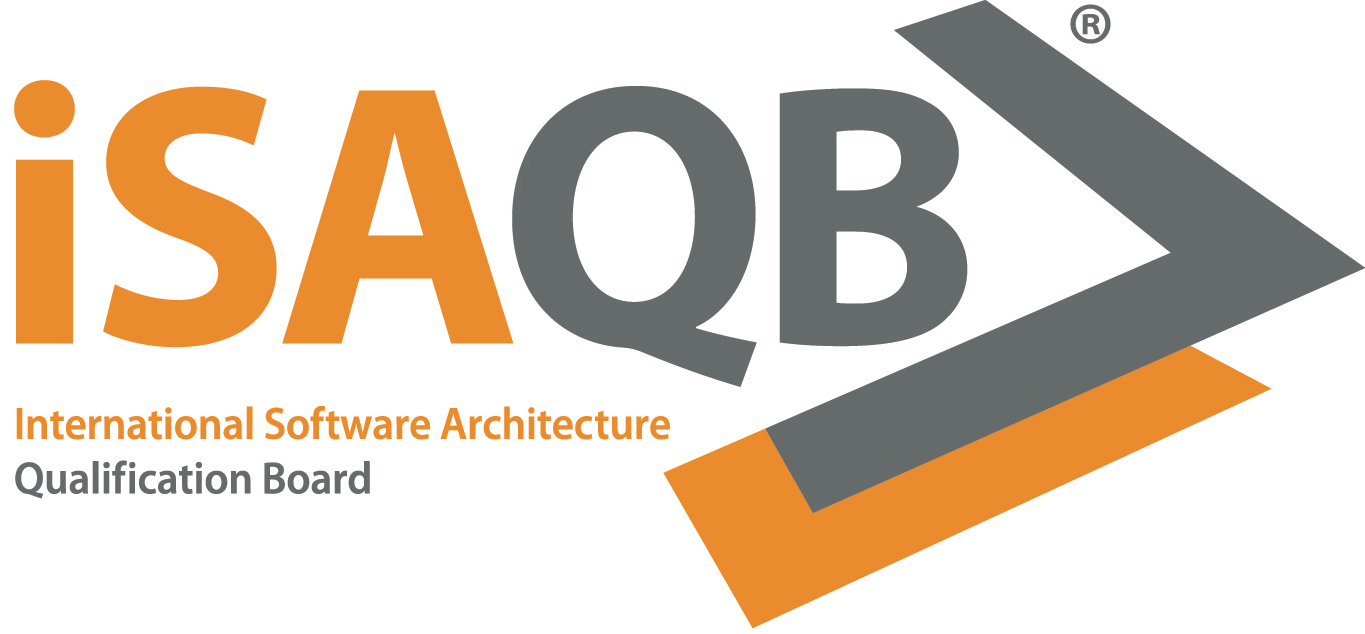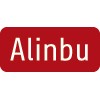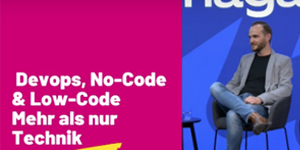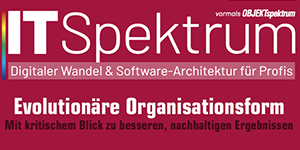Hi,
I'm Jürgen.
Co-CEO Untis GmbH | Leading with clarity, trust & purpose
Building EdTech that matters
where people, technology & culture thrive.
Creating environments where trust, autonomy and learning lead the way.
years leading technology & people
supported organizations
teams inspired to thrive
About me – Building cultures that thrive
My journey through technology and leadership has taught me that the most meaningful progress happens when people, purpose, and strategy align. Throughout my career, I've worked across sectors such as education, finance, transportation, and telecommunications – always with a clear focus on scalable, secure, and user-centric solutions.
Today, as Co-CEO of Untis, I focus on shaping organizations where trust is stronger than hierarchy, and where teams have the clarity and autonomy to do their best work.
My leadership blends transformational and servant principles: inspiring change, enabling ownership, and fostering collaboration across all levels. Agile ways of working, for me, are less about processes and more about creating the right conditions for people to adapt, innovate, and grow.
What drives me every day is seeing people grow, ideas take shape, and cultures emerge that can thrive in the complex, ever-changing world of education technology.
Trust
Building relationships where transparency and reliability are the norm.
Autonomy
Giving teams the freedom to decide, create, and take ownership.
Learning
Encouraging curiosity and growth as a constant, not an exception.
Clarity
Providing direction and purpose so everyone knows where we're heading.
Skills and strength
Leadership
Transformational & servant leadership focused on clarity, trust and purpose.
People & Organization
Lean ways of working that enable autonomy and shared ownership.
Strategy & Product
From vision to value: goals, outcomes and responsible delivery.
Technology
Modern architecture and engineering for resilient, scalable systems.
Trainings & certificates
Focus on leadership, agile ways of working and responsible product delivery.
 Scrum Alliance – Certified Agile Leader
Scrum Alliance – Certified Agile Leader
 WU Executive Academy – Agile Leadership
WU Executive Academy – Agile Leadership
 PMI – Wicked Problem Solving Practitioner 2.0
PMI – Wicked Problem Solving Practitioner 2.0
 Flight Levels Academy – Flight Level 3 Design
Flight Levels Academy – Flight Level 3 Design
 ISAQB® – CPSA Domain Driven Design (DDD)
ISAQB® – CPSA Domain Driven Design (DDD)
 Alinbu – Masterclass Selbstorganisation BetaCodex
Alinbu – Masterclass Selbstorganisation BetaCodex
View full certificate history
Learning objectives:
› The concept and meaning of software architecture
› Components, modules, interfaces and relationships
› Architecture and quality goals
› Tasks and responsibility for you as a software architect
› Your role as a software architect in projects
› State-of-the-art methods and techniques for the development of software architectures
Learning objectives:
› Technical basics
› Data-driven test automation
› Keyword-driven test automation
› Test automation in the test process
› Test management
› Market overview tools
Learning objectives:
› A2A and test automation basics
› A2A Test Automation Framework (TAF) introduction
› Compact test cases
› Process and risk management
› Test automation in the delivery lifecycle
› .NET/Java development
› Selenium
› Test management tools
› Basics of Microsoft test automation
› Load and performance testing
› Web service testing
› DevOps basics
› ISTQB Foundation Level
Learning objectives:
› Basic terms of software architecture evaluation
› Requirements in architecture evaluation
› Evaluation workshop
› Rework and result utilization
› Evaluation of existing systems (and system parts)
› Examples for the evaluation of software architectures
Learning objectives:
› Unit testing: Types of tests to automate; Fixture setup
› Readable tests: Coding tests by intention; Verifying results
› Test coverage: Identifying completeness conditions; Avoiding duplication in the conditions
› Testing patterns: Listening to your tests; Testing the tests; Refactoring tests
› Speed of builds: Test speed
› Test doubles: Use test doubles; Dependency injection
› Code smells: Clean programming; Common code smells
› Refactoring with existing test: Principles of refactoring; Common refactoring; Refactoring tools
› Dealing with legacy code: Approaching legacy code; Refactoring without tests; Retrofitting tests onto legacy code
› Test-driven development (TDD): The value of TDD; Red-Green-Refactor
› BDD: Identifying usage patterns to define the object or function interface
› Living documentation: Tests as specification and documentation: ATDD as an aid to Design Thinking
› Acceptance Test-driven development (ATDD): ATDD process; ATDD styles and tools
› Continuous integration, version control and build automation
› Pair Programming
Learning objectives:
› Management and Leadership
› Complexity Thinking
› Energize People
› Empower Teams
› Align Constraints
› Develop Competence
› Grow Structure
› Improve Everything
Learning objectives:
› Labor law
› Challenging conversations
› Burnout prevention
› Economic leadership
› Emotional intelligence
› Situational leadership
› Perception and conversation
› Principles of Self-Management
› Economic leadership
Learning objectives:
› Cloud concepts
› Core Azure services
› Core solutions and management tools on Azure
› General security and network security features
› Identity, governance, privacy, and compliance features
› Azure cost management and Service Level Agreements
Learning objectives:
› History: Origins of Agile; Agile Manifesto; Agile beyond software development
› Culture and mindset: Understanding the Agile Mindset; Establishing the Agile Mindset; Agile in context (as a journey)
› Creating shared understanding: Developing soft skills; Understanding communication barriers; Sharing knowledge; Physical work environments; Collaboration techniques; Techniques for sharing understanding
› Shifts in roles
› Incremental development: Value-based work; Retaining quality
› Work-In-Progress (WIP): Continuous integration; Cost and benefit of frequent delivery
› Include customers and users: Defining customer; User involvement; User feedback
› Planning and adapting: Planning; Estimation
› Process and product adaptation
Learning objectives:
› Boosting productivity
› Improving product quality
› Decreasing time to market
› Increasing employee engagement
› Establish Team and Technical Agility and organize around the flow of value.
› Align massive organizations around clear, common objectives
› Participate successfully in critical SAFe events, such as PI Planning
› Adopt a customer-centric mindset.
Learning objectives:
› Availability, reliability, time-to-market, flexibility, predictability, reproducibility, homogenisation of the stages, internet / web-scale, distributed systems, parallelism of feature development, evolution of the architecture (build for replacement), heterogeneity, automation
› Motivation for decompositioning into smaller systems
› Different kinds of modularisation, coupling
› System limits as a way of isolation
› Hierarchical structure
› Application, self-contained system, Microservice
› Domain-driven design concepts and "Strategic Design", Bounded contexts
› Frontend integration, legacy systems, authentication, authorisation, (loose) coupling, scalability, messaging patterns, domain events, decentralised data management.
› Modern operations, DevOps, Infrastructure as Code, Configuration Management
› Monitoring, Operations, Logging, Tracing, Metrics
› Consistency models: ACID, BASE, partitioning, CAP
› Resilience: Resilient Software Design, Stability, Availability, Graceful Degradation, Circuit Breaker, Bulkhead
Learning objectives:
› Leadership perspectives
› Team leadership
› Conflict management
Learning objectives:
› Introduction to Lean Leadership and Culture
› The House of Lean
› Lean Culture Principles and Practices
› The Job of the Lean Leader: To Challenge and To Serve
› Getting to Lean - Designing the System for a New Culture
› The Habits of Continuous Improvement: The Team Kata
Learning objectives:
› What is Design Thinking?
› Understand: Plan your Research; Conduct your Research; Identify your Findings; Evaluate your Progress
› Envision: Brainstorm new Ideas; Choose an Idea; Evaluate your Progress
› Prototype: Build a Storyboard; Test with Users; Evaluate your Progress
Learning objectives:
› Riding the Head Curve
› Building strong relationships
› Building flexible relationships
› Building fair business relationships
› Agile team meetings: Going up the Heat Curve
› Resilient leadereship
Learning objectives:
› Building a Common Framework and Language
› Create and Clarify Vision
› Involve and Engage the Organization
› Implement and Sustain the Change
› Change Management Challenges and Solutions
Learning objectives:
› Change and Transformation
Learning objectives:
› Emotional Intelligence explained
› Developing your EQ
› EQ in the Workplace
Learning objectives:
› Service Management
› The Basics of ITIL 4
Learning objectives:
› Principled Leadership and Culture
› The Business Case for Principled Leadership
› The Transformational Principles
Learning objectives:
› Wicked Problems
› Tools and environment
› Better system: A better system, Plays, Problems, Collaboration
› Lead with key questions: Key questions, Frame, Navigate, Probe
› Make ideas visible: Expres, Organize, Map
› Engage with forwards steps: Move, Shift, Align
› Resolve clearly: Solve, Top down, Bottum up, Impact
Learning objectives:
› Planning and Organizing: Principles of Lean Management; Organizing your Team; Stages of Team and Organization Development; Clarifying Decision Styles; Develop your Scorecard and Visual display
› The Team Improvement KATA: Defining customer requirements and Improvement targets; Solving problems; Mapping your value stream; Analyzing variances; Finding and eliminating waste; Motivation and human performance; Standard work; Designing hybrid work systems
› Improving Team Effectiveness: The personal responsibility of team members to self-manage; Team member's responsibility to be a great team member; Facilitating remote or virtual teams; Team facilitation skills; Effective listening skills; Giving and receiving feedback; Conflict resolution; Improving the system
Learning objectives:
› The Agile/Lean Way
› Defining Strategy, Culture and Capabilities
› The Plan for Agile Strategy Execution
› What is the Business Strategy
› Assessment: Leadership and Life Cycles; The Five Forms of Capital; Lean Culture
› Writing the Strategy Design Charter
› Design Team Discovery
› Dream the Ideal Future
› Design the Future System
› Deploying and Developing the Future State
Learning objectives:
› You, your current goals, and the 10 biggest mistakes have to avoid
› Everything about OKRs and how you can use them to achieve more and be happy
› Time to take action: Define your own OKRs now
› TOP 10 OKR-related questions from 20,000 attendees and consulting clients
› OKRs as a management and leadership principle
› Types of OKRs - aspiring and committed OKRs
› ORKs in the real world environment
› OKR tools and tips to implement ORKs
Learning objectives:
› Where and why self-organization is superior to specification
› How and why self-organization works
› What requirements self-organization needs
› The role of management in relation to self-organization
› Introducing self-organization
› Self-organization and value creation
› Self-organization and market orientation
› Self-organization, commitment & involvement
› Management and self-organization
› Compliance and self-organization
› Authorization framework of self-organization
› Self-organization and informal networks
› Coordination within and between teams
› Challenge of home office and distributed teams
› Tools and techniques
Learning objectives:
› Why Agile Leadership?
› The agile mindset
› Making organizations agile
› Implement agility
Learning objectives:
› Understanding business agility - designing your own business case for agility
› Introduction to the Leadership Agility model
› Increasing Leadership Capacity - Leading Situationally with Catalyst Leadership
› Developing "Catalysts Leadership" competencies ("Micro Culture")
› Understanding and developing your own corporate culture ("Macro Culture")
› Leading a business transformation in an agile way
Learning objectives:
› Certified Agile Leader (CAL-1)
› Certified Agile Leadership Essentials (CAL-E)
› Certified Agile Leadership for Organizations (CAL-O)
Learning objectives:
› Flight Level 3 Essentials
› A Flight Level 3 Board
› Flight Level 3 at Different Scales
› Stories, Outcomes, Flight Items (SOFI)
› Flight Level 3 Board Design
› Create Focus and Set Constraints
› Establish Agile Interactions
Learning objectives:
› Merkmale
› GmbHG
› Gründung
› Organe
› Aufsichtsrat
› Generalversammlung
› Gesellschafter, Geschäftsführer, Vertretung
› Pflichten, Haftung
› Minderung Risiken
Learning objectives:
› Domain, model, and Ubiquitous Language
› Knowledge Crunching: The path to the model
› From model to implementation
› The model in application architecture
› Strategic Design 1: Cutting and distinguishing models from one another
› Strategic Design 2: Context Mapping
Learning objectives:
› Chancen und Risiken der künstlichen Intelligenz in der Arbeitspraxis analysieren
› Eigenes Haftungspotenzial sowie das des Unternehmens
› Relevante gesetzliche Anforderungen und zentrale Fachbegriffe im Bereich KI
› Präventive und risikominimierende Sicherheitsvorkehrungen in der Praxis anwenden
Publications & talks
View all publications
› it&t business: „Performance und Agilität dank DevOps“ (Roundtable
May 2021)
› CIO Report: „Nagarro DevOps“ (Print
Jun 2021)
› Computerwelt: „Nagarro DevOps“ (Interview
Jun 2021)
› it&t business: „DevOps: Die richtige Einbahnstraße“ (Article | Print
Jul 2021)
› Nagarro: „What is DevOps“ (Video
Aug 2021)
› Nagarro: „A holistic approach to DevOps“ (Whitepaper
Sep 2021)
› Nagarro: „State of DevOps Report 2021“ (Whitepaper
Oct 2021)
› it&t business: „Hochleistungsteamarbeit mit Tücken“ (Article
Oct 2021)
› IT Spektrum 06/21: „Evolutionäre Organisationsform: Mit kritischem Blick zu besseren, nachhaltigen Ergebnissen“ (Print
Nov 2021)
› brutkasten: „Software-Future-Talk“ (Interview
Dec 2021)
› Computerwelt: „Branche braucht DevOps-Kickstart“ (Print
Dec 2021)
› Computerwelt: „Nagarro DevOps Report 2021“ (Article
Dec 2021)
› brutkasten: „Wie Unternehmen DevOps für Software-Entwicklung nutzen“ (Article
Dec 2021)
› Retrospektiv: „Podcast: Agiles Arbeiten im Unternehmen und der Bildung #23“ (Interview
Mar 2023)




